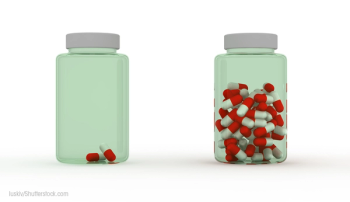
Black patients with atrial fibrillation are less likely to be treated with oral anticoagulants or DOACs.

Black patients with atrial fibrillation are less likely to be treated with oral anticoagulants or DOACs.

The risk of gastrointestinal bleeding appears to be highest with rivaroxaban and lowest with apixaban, but is reduced by cotherapy with proton pump inhibitors.

Patients with atrial fibrillation who have had cancer are less likely to see a cardiologist and less likely to fill anticoagulant prescriptions.

A new study fills in information gaps on NOAC use in patients age 80 and over.


ISMP reports that some patients have inadvertently taken double doses of rivaroxaban in dosing mixups.

A large observational study Sweden found that use of anticoagulants by patients with atrial fibrillation reduced the risk of dementia.

A study found that treating patients with rivaroxaban for 45 days after hospital discharge reducedthe rate of nonfatal blood clots, but had no effect on fatal blood clots.

A massive retrospective study compared several non-vitamin K antagonist oral anticoagulants (NOACs) to warfarin.



A reversal agent to stop serious bleeding in patients treated with apixaban and rivaroxaban has been approved.

Oral rivaroxaban may be preferable to injections of low-molecular-weight heparins for patients being treated for cancer.

A study found that apixaban is a safe alternative to VKAs for ablation of atrial fibrillation.

Andaxanet alfa has shown effectiveness for patients needing hemostasis.

Three medical groups have issued guidelines for the use of anticoagulants during cardiac surgery.

The DOAC edoxaban can replace dalteparin for treating cancer patients with venous thromboembolism.

A protein called STUB1 may help prevent blood clots in patients with chronic kidney disease without causing bleeding complications.

Direct oral anticoagulants have expanded treatment options for patients with venous thromboembolisms, but they are not for everyone.

Dialysis patients are often treated with direct oral anticoagulants, despite little research in this population.

A large Norwegian cohort study has found that warfarin is associated with a reduced risk of cancer.

Oral anticoagulants are associated with a significant reduction in dementia risk for atrial fibrillation patients.

A new resource for patients with deep vein thrombosis aims to educate about interventional therapies.

Dual antithrombotic therapy using dabigatran significantly reduces risk of bleeding compared to triple therapy using warfarin.

The risk of intraocular bleeding was reduced by one-fifth when using newer anticoagulants versus warfarin in a new study.